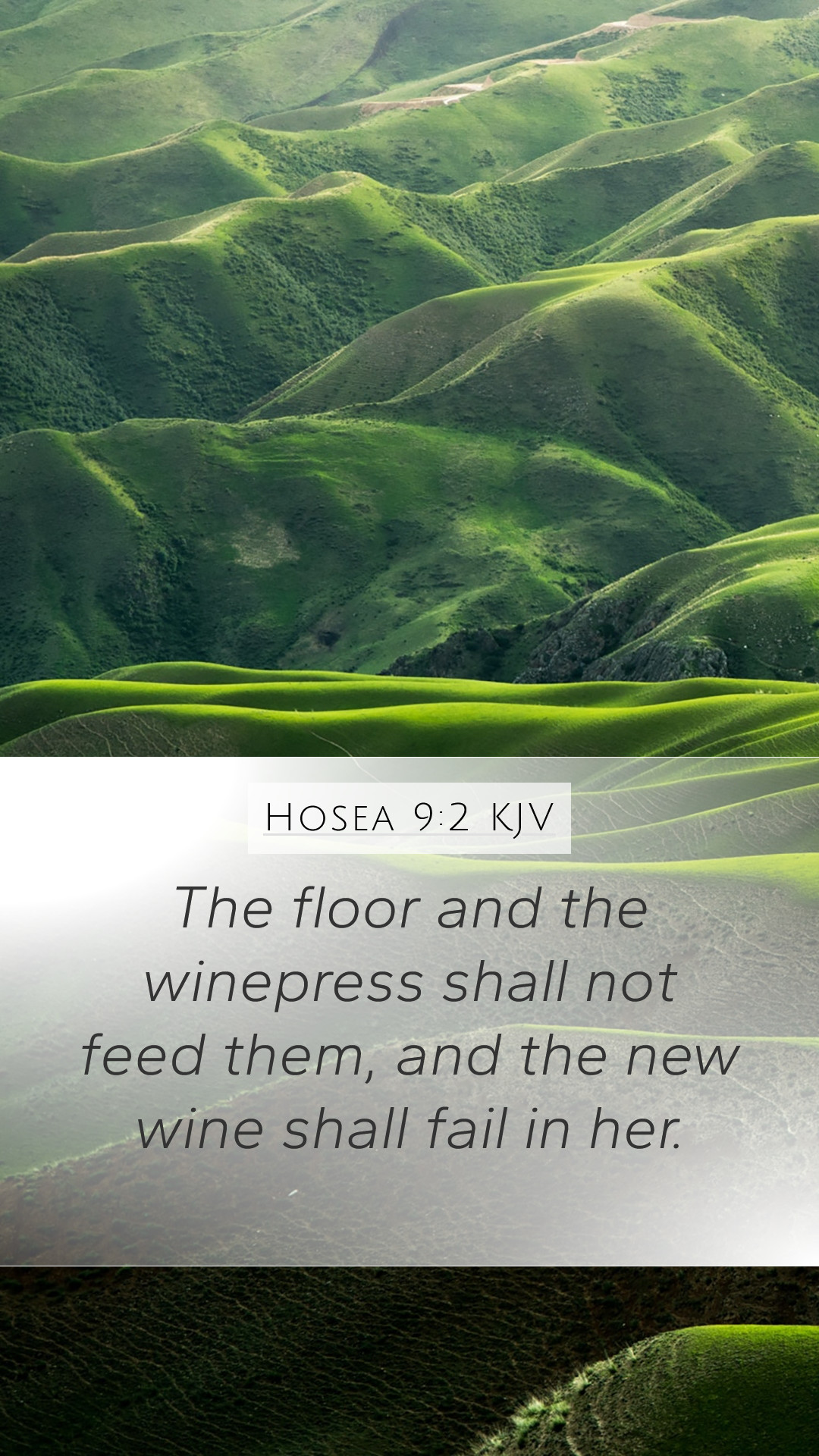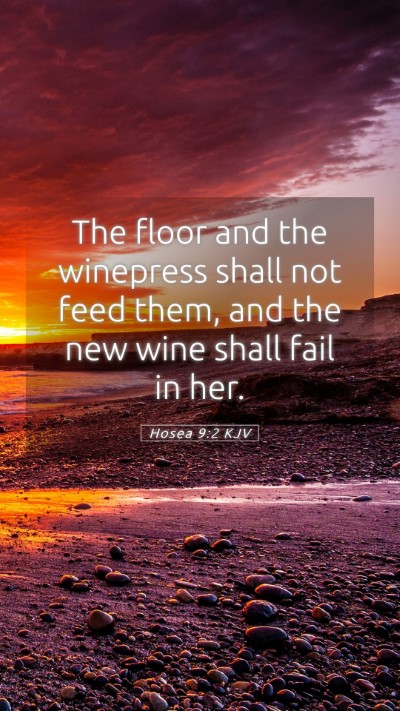Old Testament
Genesis Exodus Leviticus Numbers Deuteronomy Joshua Judges Ruth 1 Samuel 2 Samuel 1 Kings 2 Kings 1 Chronicles 2 Chronicles Ezra Nehemiah Esther Job Psalms Proverbs Ecclesiastes Song of Solomon Isaiah Jeremiah Lamentations Ezekiel Daniel Hosea Joel Amos Obadiah Jonah Micah Nahum Habakkuk Zephaniah Haggai Zechariah MalachiHosea 9:2 Meaning
What is the meaning of Hosea 9:2?
The floor and the winepress shall not feed them, and the new wine shall fail in her.
Hosea 9:2 Bible Verse Meaning
Bible Verse Meaning: Hosea 9:2
Verse: "The floor and the winepress shall not feed them, and the new wine shall fail in her." - Hosea 9:2 (KJV)
Overview: Hosea 9:2 presents a poignant commentary on the impending judgment against Israel due to their unfaithfulness. This verse encapsulates themes of desolation and the consequences of disobedience to God.
Interpretation and Analysis
This passage serves as a critical admonition concerning the state of Israel's prosperity and the fruit of their disobedience. The references to the "floor" and "winepress" symbolize agricultural abundance and the sustenance derived from it. However, because of Israel's departure from God, this abundance is foreseen to diminish.
- Matthew Henry: Matthew Henry emphasizes that the lack of grain and wine foreshadows God’s judgment, stripping Israel of their blessings because of their iniquity. The “floor” and “winepress” are not merely agricultural terms; they represent God’s grace in providing sustenance which the people have squandered.
- Albert Barnes: Barnes interprets the “new wine” as a metaphor for joy and prosperity. With its failure, Israel is to experience not just physical scarcity but also the loss of spiritual joy that comes from a relationship with God. This failure indicates a divine withdrawal of provision due to sin.
- Adam Clarke: Clarke notes that the judgment here foretold indicates a complete collapse of Israel's agrarian economy, which was central to their identity and survival. The mention of "her" serves as an allegory for Israel as a nation, reflecting the intimate connection between their agricultural practices and covenant faithfulness.
Significance in Context
In the broader narrative of Hosea, this verse highlights Israel’s unfaithfulness and God's righteous anger. The prophets often used agricultural imagery to communicate spiritual truths, making this passage particularly relatable to an ancient agrarian society. The loss of crops symbolizes a broader spiritual famine resulting from idolatry and disobedience to God.
Application of the Verse
This verse serves as a contemporary reminder for readers to reflect on their relationship with God and the consequences that arise from turning away from Him. It invites introspection on where one might experience spiritual barrenness in life due to neglecting spiritual responsibilities.
Additional Cross References
- Deuteronomy 28:38-40 - The curses for disobedience
- Isaiah 24:7-10 - The desolation of the earth
- Joel 1:10-12 - The devastation of crops as a sign of judgment
Further Study Insights
Those engaged in Bible study groups and online Bible study will find this verse a profound starting point for discussions on divine justice and mercy. Understanding context through Bible study resources can lead to deeper insights in personal study and communal discussions.
This verse also resonates in understanding Old Testament prophecy interpretations, showcasing the essential need for fidelity to God and the bittersweet consequences of humanity's choices. This analysis encourages readers to pursue Bible study lessons focused on the covenant relationship between God and His people.


